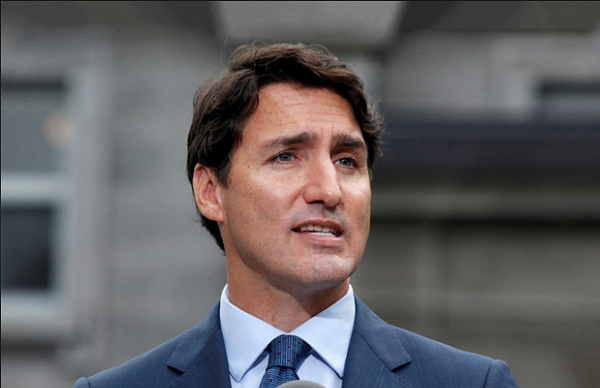Most Canadians fail to support federal government’s budget: poll suggests
Prime Minister Justin Trudeau’s latest budget was aimed at making Canadians feel better about their future, but it appears to have made them feel worse about his government, a new poll suggests.
The latest Abacus Data survey sought to gauge whether and how the Liberals’ latest budget landed with Canadians at a time when the governing party is trailing badly in the polls — which the survey found is still the case.
The poll suggests awareness of the budget was high, reflecting perhaps the Liberals’ pre-budget tour that for days hyped their key announcements, particularly on housing.
And what people were mostly likely to remember about it was what the Liberals had hoped, the survey suggests: a focus on housing and a plan to change the capital gains tax system in a way that makes certain Canadians pay more.
But the survey suggests that even if people did know about the budget, it doesn’t mean it landed in a positive way: 54 per cent of those surveyed said it left them with a more negative feeling about the government, and 20 per cent said it had no impact at all.
Meanwhile, the survey showed the Conservatives still dominate with the support of 44 per cent of decided voters, compared to 23 per cent for the Liberals — more or less the same numbers as the last time Abacus was in the field.
“Part of why this hasn’t changed anything at this point is that I don’t think the budget changes the fundamental desire people — including young people — have. And that’s change,” said Abacus Data CEO David Coletto.
“Until people feel that their lived experience is changing and improving, they will continue to seek someone else to solve the problem.”
The online survey of 1,500 adult Canadians ran from April 25 to 29. Online polls can’t be considered truly random, but a sample of the same size using traditional polling methods would have a margin of error of plus or minus 2.6 per cent, 19 times out of 20.
The survey also suggests that the target market for the budget — Gen-Z and millennials — are on the fence about it.
Voters under 29 appear divided on whether Trudeau’s fiscal blueprint makes them feel better or worse about the government, while those between 30-44 were left happier with the budget than voters in the next age bracket.
At the same time, those inclined to vote Liberal within those demographics declined between the poll Abacus did prior to the budget and the most recent survey.
So, there may still be room for the Liberals to manoeuvre, but not much, Coletto said.
“The government — like all organizations — need to do a lot more to connect directly with audiences. Younger Canadians are the hardest. They have to find a way to take their story directly to people,” he said.
The Liberals have tried one avenue already to get their message out: social media influencers were invited into pre-budget briefings to read in on the government’s plan in the hopes they communicated it to their followers.
How much traction their efforts will garner is hard to discern; one duo invited into the budget posted about being there but appeared to still have not posted any content about the budget itself, despite the document being introduced two weeks ago. Another influencer’s video only showed up this week.
The Liberals’ sales job is also far from over.
The Conservatives have already said they won’t support the budget — and the Liberals have argued that means they are against measures like a national school food program or billions more for housing.
But Conservative Leader Pierre Poilievre has also refused to state a clear position on one of the budget’s most prominent measures: the increase to the capital gains tax, being framed by the Liberals as a way to make Canada’s wealthiest pay a “fair” share.
Expert analysis and opinion is divided on whether that’s actually who is targeted, with some small businesses and tech leaders arguing their work will actually be harmed by the approach.
Earlier Wednesday, Poilievre told CP24 the Liberals would back down from the measure, citing the fact it has been hived off from the main budget bill, and so he couldn’t say whether he backed it or not because it was going to change.
Finance Minister Chrystia Freeland has said it will be its own bill because it is so technical. Then, when she was asked whether it’s also explicitly to make the Conservatives vote on the issue, her answer? A subtle smile.
This article was first reported by The Star













